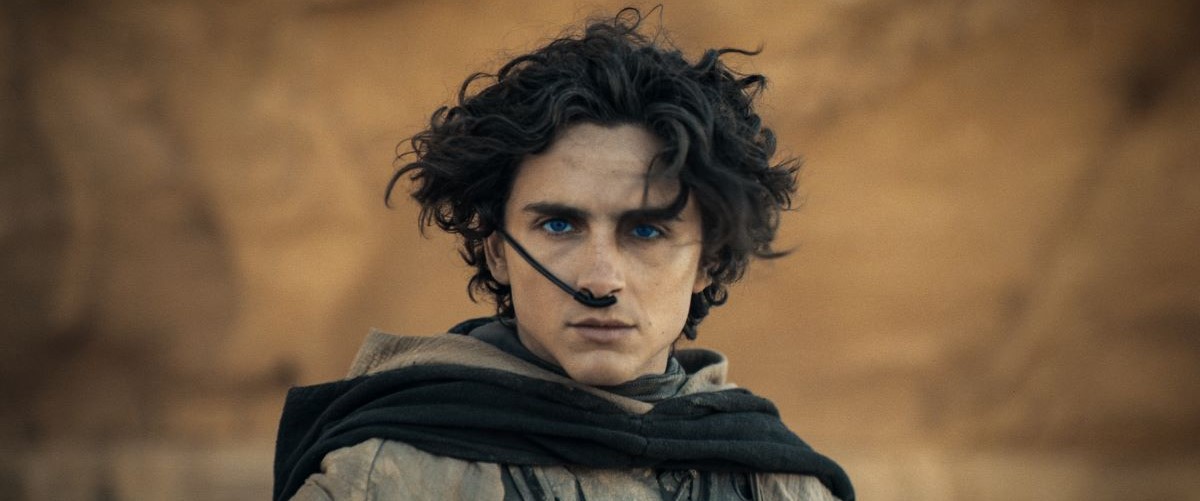
I want to start this review by speaking directly to the people who were eagerly looking forward to Denis Villeneuve’s Dune: Part Two. Congratulations. This film is going to exceed your expectations, light up your pleasure sensors, and pretty much blow your minds. As the kids say, you will be fed.
But what about the rest of us? For all its stellar special effects, rousing action, awe-inspiring beauty—undulating sand dunes, billowing capes, fire-red crescent moons—and cast of young Hollywood hotties acting their butts off, Dune Part Two didn’t pass the ultimate test for me. That test being: Would I recommend the film to my mother? No. No I would not.
Look, not all films are for all people—I get that. But the very best genre films transcend their tropes and offer something for everyone. An apropos example: I would recommend Villeneuve’s Arrival to all film lovers, not just sci-fi fans.
My biggest objection to the Dune series continues to be that it takes itself far too seriously. Again, I get it—we’re dealing with serious stuff here: dying civilizations, ancient prophecies, struggles for power, the dark temptation of revenge. But just because something is set in a desert doesn’t mean it has to be this dry.
I was a fan of first Dune in this series, although I logged similar complaints about its self-seriousness. This one is a little better; the action is just as thrilling but the characters are given more depth and the central moral dilemma of Paul Atreides (Timothée Chalamet)—at what point does one become blinded by power?—begins to snap into focus. There is also a love story with the wonderful Zendaya, playing Chani, a member of the blue-eyed desert people, the Fremen of Arrakis. Paul is utterly devoted to her (“I will love you for as long as I breathe”) but she is a bit more circumspect. “You will never lose me as long as you stay who you are,” she says pointedly. She knows that Paul is being pulled by some powerful temptations, namely the Fremen people, who see him as a possible savior. They grow to worship him, especially after he manages to tame one of those giant worm creatures, riding it like Ben Hur through the swirling sand. But will Paul lose himself in his quest for revenge? It’s hard not to root for the brave and resolute Paul—he is played by Chalamet, after all—but Chani serves as the film’s voice of moral clarity and skepticism. She knows he’s teetering toward a point of no return.
But we’re not there yet. Paul is still quite heroic in this film, even as he’s haunted by visions of leading the Fremen people to their own destruction. He has voices in his ear: His power-hungry, sorceress mother (Rebecca Ferguson), now pregnant with Paul’s sister, and recruited by the Fremen to be their Reverend Mother; the big-hearted Fremen patriarch, Stilgar (Javier Bardem), who is a true believer in Paul as the messiah; and Chani, who tells him to be wary of these prophecies.
Meanwhile, Arrakis is under siege by the Harkonnen kingdom, a land with, apparently, no Rogaine. Last film we met the Jabba the Hut-like Baron (Stellan Skarsgard), who was after the Arrakis’ precious resource of “spice.” This time we also meet his creepy nephew Feyd (Austin Butler), a lethal swordsman, not above cheating to win a dual, with a beautiful, alien-like face and positively crazed eyes.
Florence Pugh, who does some of the film’s narration, only appears briefly as the daughter of the Emperor Shaddam IV (Christopher Walken), who feels his grip on power slipping away. Her arc will be compelling—she’s loyal to her father, just as Paul was loyal to his, but she comes to realize that he is not a righteous man. By the film’s end, her fate and Paul’s fate will be inextricably entwined. (Alas, we’re going to have to wait for Part Three to see it play out.)
Villeneuve recently gave an interview where he said that he is mostly interested in cinema for spectacle, that dialogue holds little appeal to him. Having seen Dune: Part Two that tracks. The film is a spectacle, a marvel of craftsmanship, the sort of film you need to see on the largest screen possible. But the dialogue is mostly expository, and at times painfully earnest. That said, I wouldn’t want some script doctor jazzing this thing up with zingers (“Stop trying to worm your way out of this, Paul!”). That’s definitely not the vibe. Dune Part Two is the best Dune Part Two it can possibly be. I just have to accept that it’s not the best film for me.
